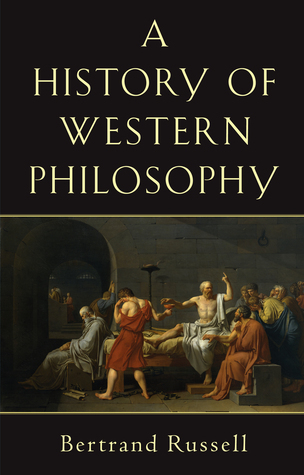
A History of Western Philosophy
Book Description
Philosophy is a battlefield, and every idea a warrior in the clash of intellects. Bertrand Russell takes you on a thrilling journey through the ages, unveiling the epic struggles of legendary thinkers from Socrates to Nietzsche. Their bold theories shape reality, ignite revolutions, and challenge the very fabric of society. With sharp insights and compelling narratives, Russell reveals how philosophy impacts our lives today, sparking revolutions of thought and belief. As the dust settles on the minds that changed history, one question looms: What legacy will your own thoughts leave in this eternal contest?
Quick Book Summary
"A History of Western Philosophy" by Bertrand Russell is an expansive chronicle of the evolution of philosophical thought in Western civilization. From the ancient Greeks to the early 20th century, Russell explores the seminal ideas, debates, and personalities that have shaped Western philosophy. Through engaging and critical analysis, he presents how philosophy intersected with developments in science, politics, and religion, driving both intellectual and societal progress. The book not only charts the origins and growth of philosophical currents but also contextualizes them within their historical moments, highlighting their enduring influence on contemporary thought. Russell’s clear and witty prose brings complex theories to life, offering readers both a survey of the field and a provocative commentary on its impact and relevance today.
Summary of Key Ideas
Table of Contents
The Role of Philosophy in Shaping Civilization
Bertrand Russell begins his exploration by tracing the roots of Western philosophy to ancient Greece, where thinkers like Pythagoras, Heraclitus, and, most notably, Socrates, Plato, and Aristotle laid the foundations for metaphysics, ethics, and logic. Russell highlights how the questions of existence, knowledge, and morality framed by these philosophers became touchstones for all subsequent philosophical inquiry. He stresses the formative impact of the Greeks’ emphasis on rational discourse and observation, which established a tradition that would continually redefine itself throughout Western history.
Conflicts Between Reason and Faith
Moving to the Hellenistic and early Christian eras, Russell discusses the dynamic tension between the rationalism of the Greeks and the spiritual focus of Christianity. This epoch is characterized by a synthesis as well as a struggle between reason and faith, exemplified in thinkers such as Augustine and Aquinas, who attempted to bridge classical philosophy with Christian doctrine. Russell critically examines the medieval period, showing how philosophy became a servant to theology but also sowed seeds of later secular inquiry by insisting on rigorous logical argumentation within religious frameworks.
The Rise of Scientific Thought
The Renaissance and Enlightenment mark the resurgence of independent thought, with figures like Descartes, Spinoza, and Locke questioning authority and pursuing scientific rationality. Russell demonstrates how the development of new scientific methodologies fueled skepticism of dogma and inspired the re-examination of knowledge, reality, and the rights of the individual. This era, according to Russell, is the crucible of modern philosophy, witnessing seismic shifts in metaphysics, epistemology, and political theory that undergird today’s intellectual landscape.
Revolutions in Metaphysics and Ethics
Russell details the proliferation of revolutionary philosophies in the 19th and early 20th centuries. German idealists like Kant and Hegel, existentialists such as Nietzsche, and analytic traditions pioneered by thinkers including himself, all sought to redefine reality, values, and meaning. Russell emphasizes the growing complexity of philosophical inquiry as it becomes deeply entwined with advances in science, technology, and social change. He argues that this era reflects both the limitations and the limitless ambition of philosophy as it grapples with its own nature and purpose.
Legacy and Influence on Modern Society
Throughout the book, Russell underscores philosophy’s role as a living force that not only interprets but also shapes civilization. He illustrates how the legacies of past philosophers persist in modern institutions, ideals, and everyday life. Concluding, Russell encourages critical engagement with philosophical questions, viewing them as essential to nurturing an informed, reflective, and progressive society. His history is not only an account of ideas but an invitation to participate in the ongoing contest of reason and belief that defines the Western intellectual tradition.
Download This Summary
Get a free PDF of this summary instantly — no email required.





